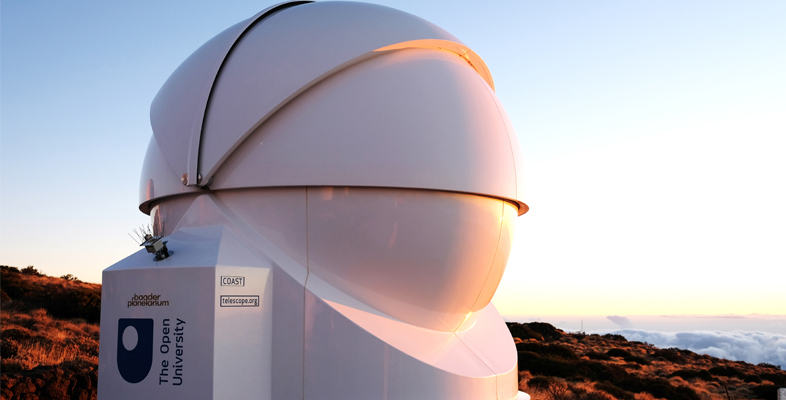Find out more about The Open University's Science courses and qualifications.
 Looking back, what were the highlights of your time working with POST?
Looking back, what were the highlights of your time working with POST?
Honestly, it was one of the best times of my life! Highlights… going up to London every day, walking through Green Park and St James’s Park and past Buckingham Palace – I knew if the Queen was in! Being in the heart of London, being where everything is happening, working in an office on the Parliamentary estate, walking through Parliament Square past the reporters talking to camera, having lunch in the Palace of Westminster, sitting on the terrace of the House of Commons, going to Prime Minister’s Questions, talking politics with the other students on fellowships, MP-spotting… just being in the atmosphere of Westminster.
And of course, I knew that I was working on something that would have an impact and be used by parliamentarians; that I was producing something that could help decision-makers make informed decisions on laws that directly affect people.
This would be a good point to explain how the POST fellowship scheme works. What did you do during your fellowship?
One of POST’s functions is to produce impartial, accessible briefings that bring together research on topics of current interest, for use by parliamentarians – both MPs and peers. The topics to be researched are decided by the POST board, which is made up of MPs, peers, research experts nominated by the National Academies and representatives of research services in the House of Lords and the House of Commons.
The topic I was assigned was to undertake research for a POST report on Assisted Dying. This is a subject that individual experts and organisations have strong feelings about, so when I was researching and writing I felt a sense of responsibility to make sure all the evidence was presented in an impartial and balanced way, that all the different points of view were represented and that I was making the best use of what people shared with me. That was hard but really rewarding.
For the research, I interviewed experts and representatives from across academia, the third sector, government and parliamentarians. I used the evidence from the interviews to help me pinpoint the key literature we needed to include in the report, which I reviewed and analysed. Then, working with my POST supervisor, Dr Abbi Hobbs, we drafted – and re-drafted and re-drafted! – the briefing paper, building on feedback from external reviewers (including some of my interviewees).
There was a lot to do and the pace was pretty quick, with deadlines every couple of weeks. But I liked that change of environment; it really suited me. And now I’ve come back to my PhD, I’m trying to keep that pace up!
How did you find out about POST fellowships?
Just by chatting to another student here at the Open University who was doing a fellowship. I thought it sounded really interesting and something I’d love to do. I kept an eye on the POST website until an opportunity came up that fitted my research background and interests. The place I applied for was sponsored by the Nuffield Foundation, which is a charity that focuses on research into social policy, welfare and well-being.
And how did you apply for the fellowship?
I had to write a mini-POSTnote on a topic that I thought would be interesting for parliamentarians. POSTnotes are written in a very particular style; they focus on what is happening right now and why it is interesting right now. Because they’re written for parliamentarians, they must go straight to the point, they have to be accurate and unbiased and they must be rigorously evidenced. They’re also very short – my mini-note was just two sides of A4! My POSTnote took me a long time to write but I think the hardest part was choosing the topic – it had to be something unrelated to my PhD and I wanted it to be something that filled a gap in the POSTnote collection. I also had an interview with people from POST and the Nuffield Foundation. And the more I prepared for that, the more I knew I really wanted the fellowship.
You had to pause your PhD for three months to do the fellowship. Was it worth it? What benefits have you found from doing the fellowship?
It was definitely worth it! The Nuffield Foundation was very generous with travel expenses, so I was able to go into London every day, which was a massive part of the experience. Through the work, I learned new skills that are relevant to my PhD and I came back to it with a new energy and a fresher mind. I learned about meeting tough deadlines, untangling a complex topic and writing to a prescribed style and format. I also worked for a day at the Nuffield Foundation, including giving what they call a ‘lunch and learn’ talk about the work I’d done at POST, which started some new connections and links with new networks for me. I’ve never done much research in health or ethics but the fellowship opened my eyes and now I’m thinking that I might like to work in these areas. The fellowship was a really good opportunity to shape my career and think about what I want to do next. It was one of the best times of my life; a real privilege.
 This article is part of the Astrobiology Collection on OpenLearn. This collection of free articles, interactives, videos and courses provides insights into research that investigates the possibilities of life beyond the Earth and the ethical and governance implications of this.
This article is part of the Astrobiology Collection on OpenLearn. This collection of free articles, interactives, videos and courses provides insights into research that investigates the possibilities of life beyond the Earth and the ethical and governance implications of this.



Rate and Review
Rate this article
Review this article
Log into OpenLearn to leave reviews and join in the conversation.
Article reviews